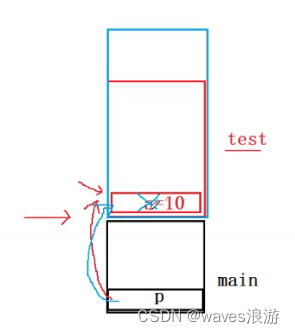本文介绍: •••••#include#include// signal#include// alarm#include// printfintalarmed;voidintsignum) {voidintsignum) {intmain( ) {charstringA[40] =;charstringB[40];printf(“%sn”
CSS422 Final Project
Thumb-2 Implementation Work of Memory/Time-Related C Standard Library Functions.
1. Objective
You’ll understand the following concepts at the ARM assembly language level through this final project
that implements memory/time-related C standard library functions in Thumb-2.
•
CPU operating modes: user and supervisor modes
CPU operating modes: user and supervisor modes
•
System-call and interrupt handling procedures
System-call and interrupt handling procedures
•
C to assembler argument passing (APCS: ARM Procedure Call Standard)
C to assembler argument passing (APCS: ARM Procedure Call Standard)
•
Stack operations to implement recursions at the assembly language level
Stack operations to implement recursions at the assembly language level
•
Buddy memory allocation
Buddy memory allocation
This document is quite dense. Please read it as soon as the final project spec. becomes available to you.
2. Project Overview
Using the Thumb-2 assembly language, you will implement several functions of the C standard library that
will be invoked from a C program named driver.c. See Table 1. These functions must be code in the Thumb-
2 assembly language. Some of them can be implemented in stdlib.s running in the unprivileged thread mode
(=user mode), whereas the others need to be implemented as supervisor calls, (i.e., in the handler mode =
supervisor mode). For more details, log in one of the CSS Linux servers and type from the Linux shell:
man 3 function
where function is either bezro, strncpy, malloc, free, signal, or alarm
The driver.c we use is shown in listing 1. It tests all the above six stdlib functions. Please note that printf()
in the code will be removed when you test your assembly implementation, because we won’t implement
the printf( ) standard function.
Listing 1: driver.c program to test your implementation
#include
<strings.h>
// bzero, strncpy
<strings.h>
// bzero, strncpy
#include
<stdlib.h>
// malloc, free
<stdlib.h>
// malloc, free
#include
<signal.h>
// signal
<signal.h>
// signal
#include
<unistd.h>
// alarm
<unistd.h>
// alarm
#include
<stdio.h>
// printf
<stdio.h>
// printf
int
*
alarmed
;
*
alarmed
;
void
sig_handler1
(
int
signum
) {
sig_handler1
(
int
signum
) {
*alarmed = 2;
}
void
sig_handler2
(
int
signum
) {
sig_handler2
(
int
signum
) {
*alarmed = 3;
}
int
main
( ) {
main
( ) {
char
stringA
[40] =
“0123456789ABCDEFGHIJKLMNOPQRSTUVWXYZabc”
;
stringA
[40] =
“0123456789ABCDEFGHIJKLMNOPQRSTUVWXYZabc”
;
char
stringB
[40];
stringB
[40];
bzero( stringB, 40 );
strncpy( stringB, stringA, 40 );
bzero( stringA, 40 );
printf(
“%sn”
, stringA );
“%sn”
, stringA );
printf(
“%sn”
, stringB );
“%sn”
, stringB );
void
*
mem1
= malloc( 1024 );
*
mem1
= malloc( 1024 );
void
*
mem2
= malloc( 1024 );
*
mem2
= malloc( 1024 );
void
*
mem3
= malloc( 8192 );
*
mem3
= malloc( 8192 );
void
*
mem4
= malloc( 4096 );
*
mem4
= malloc( 4096 );
void
*
mem5
= malloc( 512 );
*
mem5
= malloc( 512 );
void
*
mem6
= malloc( 1024 );
*
mem6
= malloc( 1024 );
void
*
mem7
= malloc( 512 );
*
mem7
= malloc( 512 );
free( mem6 );
free( mem5 );
free( mem1 );
free( mem7 );
free( mem2 );
void
*
mem8
= malloc( 4096 );
*
mem8
= malloc( 4096 );
free( mem4 );
free( mem3 );
free( mem8 );
alarmed = (
int
*)malloc( 4 );
int
*)malloc( 4 );
*alarmed = 1;
printf(
“%dn”
, *alarmed);
“%dn”
, *alarmed);
signal( SIGALRM, sig_handler1 );
alarm( 2 );
while
( *alarmed != 2 ) {
( *alarmed != 2 ) {
void
*
mem9
= malloc( 4 );
*
mem9
= malloc( 4 );
free( mem9 );
}
printf(
“%dn”
, *alarmed);
“%dn”
, *alarmed);
signal( SIGALRM, sig_handler2 );
alarm( 3 );
while
( *alarmed != 3 ) {
( *alarmed != 3 ) {
void
*
mem9
= malloc( 4 );
*
mem9
= malloc( 4 );
free( mem9 );
}
printf(
“%dn”
, *alarmed);
“%dn”
, *alarmed);
return
0;
0;
}
This driver program repeats allocating and deallocating memory space and thereafter sets the sig_handler1(
) function to be called upon receiving the first timer interrupt (in 2 seconds) and sig_ahndler2( ) function to
be called upon the second timer interrupt (in 3 seconds).
3. System Overview and Execution Sequence
3.1. Memory overview
This project maps all code to 0x0000.0000 – 0x1FFF.FFFF in the ARM’s usual ROM space (as the Keil C
compiler/ARM assembler does) and defines a heap space; user and SVC stacks; memory control block
(MCB) to manage the heap space; and all the SVC-related parameters over 0x2000.1000 – 0x2000.7FFF
in the ARM’s usual SRAM space. See table 2.
Listing 2: The memory space definition in Thumb-2
Heap_Size
EQU 0x00005000
AREA HEAP, NOINIT, READWRITE, ALIGN=3
__heap_base
Heap_Mem
SPACE Heap_Size
__heap_limit
Handler_Stack_Size
EQU
0x00000800
Thread_Stack_Size
EQU
0x00000800
AREA
STACK, NOINIT, READWRITE, ALIGN=3
Thread_Stack_Mem
SPACE Thread_Stack_Size
__initial_user_sp
Handler_Stack_Mem
SPACE Handler_Stack_Size
__initial_sp
3.2. Initialization, system call, and interrupt sequences
(1)
Initialization:
the ARM processor reads the first 8 bytes to set MSP and the next 8 bytes to jump
Initialization:
the ARM processor reads the first 8 bytes to set MSP and the next 8 bytes to jump
to the Reset_Handler routine (as you studied in the class). You don’t have to change the original
vector table. Reset_Handler initializes all the data structures you’ve developed and finally calls
__main with listing 3.
Listing 3: The last two instructions in Reset_Handler (startup_TM4C129.s)
LDR R0, =__main
BX R0
These last two statements are from the original startup_TM4C129.s. Then, the main( ) function in
driver.c is invoked.
(2)
System calls:
whenever main( ) calls any of stdlib functions including bzero, strncpy, malloc, free,
System calls:
whenever main( ) calls any of stdlib functions including bzero, strncpy, malloc, free,
signal, and alarm, the control needs to move to strlib.s. In other words, you need to define these
function protocols in strlib.s, as shown in listing 4:
Listing 4: The framework of stdlib.s
AREA
|.text|, CODE, READONLY, ALIGN=2
THUMB
EXPORT _bzero
_bzero
; Implement the body of bzero( )
MOV
pc, lr ; Return to main( )
EXPORT _strncpy
_strncpy
; Implement the body of strncpy( )
MOV
pc, lr ; Return to main( )
EXPORT _malloc
_malloc
; Invoke the SVC_Handler routine in startup_TM4C129.s
MOV
pc, lr ; Return to main( )
EXPORT _free
_free
; Invoke the SVC_Handler routine in startup_TM4C129.s
MOV
pc, lr ; Return to main( )
EXPORT _signal
_signal
; Invoke the SVC_Handler routine in startup_TM4C129.s
MOV
pc, lr ; Return to main( )
EXPORT _alarm
_alarm
; Invoke the SVC_Handler routine in startup_TM4C129.s
MOV
pc, lr ; Return to main( )
END
Among these six stdlib functions, you’ll implement the entire logic of bzero( ) and strncpy( ) as
they may be executed in the user mode. However, the other four functions must be handled as a
system call. You need to invoke SVC_Handler in startup_TM4C129.s. Based on the Linux system
call convention, use R7 to maintain the system call number. Arguments to a system call should
follow ARM Procedure Call Standard, as summarized in table 3.
原文地址:https://blog.csdn.net/2301_81856980/article/details/136065264
本文来自互联网用户投稿,该文观点仅代表作者本人,不代表本站立场。本站仅提供信息存储空间服务,不拥有所有权,不承担相关法律责任。
如若转载,请注明出处:http://www.7code.cn/show_68235.html
如若内容造成侵权/违法违规/事实不符,请联系代码007邮箱:suwngjj01@126.com进行投诉反馈,一经查实,立即删除!
主题授权提示:请在后台主题设置-主题授权-激活主题的正版授权,授权购买:RiTheme官网
声明:本站所有文章,如无特殊说明或标注,均为本站原创发布。任何个人或组织,在未征得本站同意时,禁止复制、盗用、采集、发布本站内容到任何网站、书籍等各类媒体平台。如若本站内容侵犯了原著者的合法权益,可联系我们进行处理。







